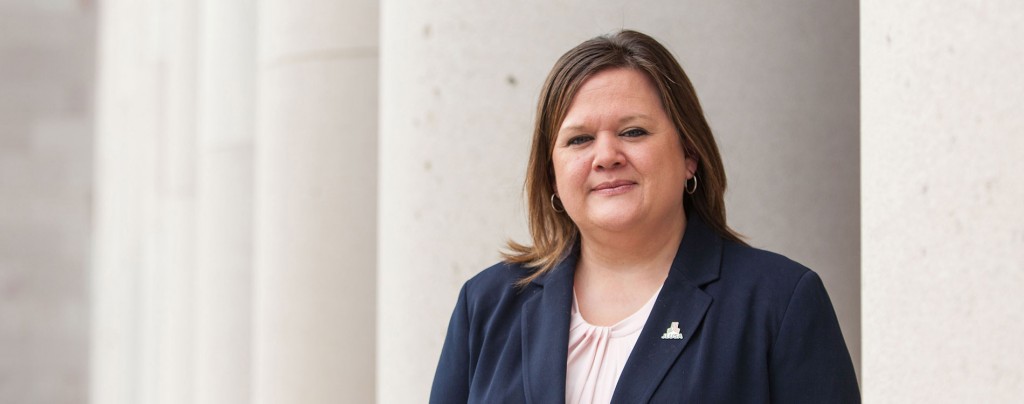Page 137 • (1,691 results in 0.086 seconds)
-
, violence, gender, ethnicity, religion, and environmental concerns. HIST 248 – Innovation, Ethics, and Society – SO (4) PHIL 248 – Innovation, Ethics, and Society – PH (4) Two courses covering a history of innovation, problem solving, and creativity in the global economy, emphasizing the ethical considerations that arise as a result of new products and initiatives, disruptive technologies, globalization, and cultural change. Both courses emphasize clear writing and communication practices, teamwork, and
-

maintain or gain support in the closing days of the race. Sponsored by the Department of Politics and Government. 11th Annual David and Marilyn Knutson Lecture Oct. 26 | 7:30 p.m. | Lagerquist Concert Hall Dr. Jennifer Harvey will lecture on “From Ferguson to Charleston: Religous Fath, Righteous Feminists and Holy Fire.” Sponsored by the Department of Religion. Working for Change Nov. 2 | 6-8 p.m. | AUC 133 Alumni panel highlighting Post-graduate service opportunities for alums pursuing domestic and
-
understanding of their cultural identities through reflection on values while learning how to create positive change in their communities. This community focuses on intersectionality across the following three sub-communities: First in the Family For students who are first in their families to attend college (first-generation students whose parents did not graduate from a four-year, degree granting institution in the U.S.) with support to connect them to resources for success in and out of the classroom
-
. They also recognize the need for change. Confronting microaggressions remains a primary challenge. Microaggressions are subtle, often unintentional, comments or actions directed at a minority or marginalized group that may cause offense or reinforce harmful stereotypes. Some examples from the mouths of PLU students, faculty and staff include: “You’re pretty for a black woman.” “You don’t look or sound Hispanic.” “You look like a girl.” “What are you?” Wallace says he always reminds himself that
-

rehabilitation. “There’s a variety of ways we are criminalized for life,” Simmons said. “I am working to change laws that provide more opportunities to people who have paid their debt to society and have rehabilitated, because redemption needs to be part of the criminal justice system.” If there’s somebody cut out for the job, it’s Simmons — a resilient attorney who overcame more than most to get through law school, and has already accomplished more than many lawyers do in a lifetime. “Tarra is absolutely
-
a punitive system into one of rehabilitation. “There’s a variety of ways we are criminalized for life,” Simmons said. “I am working to change laws that provide more opportunities to people who have paid their debt to society and have rehabilitated, because redemption needs to be part of the criminal justice system.” If there’s somebody cut out for the job, it’s Simmons — a resilient attorney who overcame more than most to get through law school, and has already accomplished more than many
-
Guide *you can also change your picture to better represent your name or pronouns if you would like by changing your picture on the GET app prior to submitting the form* What sort of LGBTQ academic resources does PLU have?The PLU Library’s collection supports the academic curriculum and primarily provides access to materials intended to support student coursework and research, including research on LGBTQ topics. A representative selection of library resources with relevant content can be found on
-
religious spheres in our contemporary context. (4) RELI 364 : Theological Studies - RL, VW Special topics course. Selected topic or movement within Christian theology. RELI 344 for cross cultural GenEd and RELI 354 for alternative perspective GenEd. May be repeated for credit with different topic (up to 8 credit hours). (4) RELI 365 : Climate Justice - RL, VW This course offers in-depth exploration of how religious communities and religious leaders are responding to anthropogenic climate change and how
-

and environmentally sustainable agriculture. Laurie-Berry started teaching at PLU in the fall of 2008. In addition to Plant Physiology, Laurie-Berry’s other classes include Plant Development and Genetic Engineering and a first-year writing class focused on global agriculture, world hunger, genetic engineering and related topics. “Our central question for the course is how agriculture and related systems must change to alleviate global hunger,” Laurie-Berry says.Before 2015, the original PLU
-

these images, he could determine the time it takes for the stars to go through their changes in brightness. “My research is on Variable Stars or stars whose brightness is known to change over time. By operating the telescope and utilizing the observatory’s charge-coupled device (CCD) camera, I could image a small set of variable stars to track the changes in brightness,” said Kop. 3-D Printing:“I am placing what is known as a Bahtinov Mask on our Meade LX200 16" telescope at the observatory
Do you have any feedback for us? If so, feel free to use our Feedback Form.


